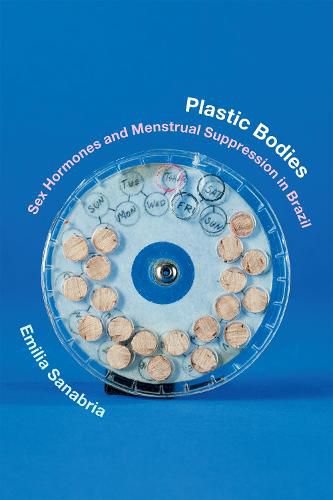Readings Newsletter
Become a Readings Member to make your shopping experience even easier.
Sign in or sign up for free!
You’re not far away from qualifying for FREE standard shipping within Australia
You’ve qualified for FREE standard shipping within Australia
The cart is loading…






In Plastic Bodies Emilia Sanabria examines how sex hormones are enrolled to create, mold, and discipline social relations and subjectivities. She shows how hormones have become central to contemporary understandings of the body, class, gender, sex, personhood, modernity, and Brazilian national identity. Through interviews with women and doctors; observations in clinics, research centers and pharmacies; and analyses of contraceptive marketing, Sanabria traces the genealogy of menstrual suppression, from its use in population control strategies in the global South to its remarketing as a practice of pharmaceutical self-enhancement couched in neoliberal notions of choice. She links the widespread practice of menstrual suppression and other related elective medical interventions to Bahian views of the body as a malleable object that requires constant work. Given this bodily plasticity, and its potentially limitless character, the book considers ways to assess the values attributed to bodily interventions. Plastic Bodies will be of interest to all those working in medical anthropology, gender studies, and sexual and reproductive health.
$9.00 standard shipping within Australia
FREE standard shipping within Australia for orders over $100.00
Express & International shipping calculated at checkout
In Plastic Bodies Emilia Sanabria examines how sex hormones are enrolled to create, mold, and discipline social relations and subjectivities. She shows how hormones have become central to contemporary understandings of the body, class, gender, sex, personhood, modernity, and Brazilian national identity. Through interviews with women and doctors; observations in clinics, research centers and pharmacies; and analyses of contraceptive marketing, Sanabria traces the genealogy of menstrual suppression, from its use in population control strategies in the global South to its remarketing as a practice of pharmaceutical self-enhancement couched in neoliberal notions of choice. She links the widespread practice of menstrual suppression and other related elective medical interventions to Bahian views of the body as a malleable object that requires constant work. Given this bodily plasticity, and its potentially limitless character, the book considers ways to assess the values attributed to bodily interventions. Plastic Bodies will be of interest to all those working in medical anthropology, gender studies, and sexual and reproductive health.